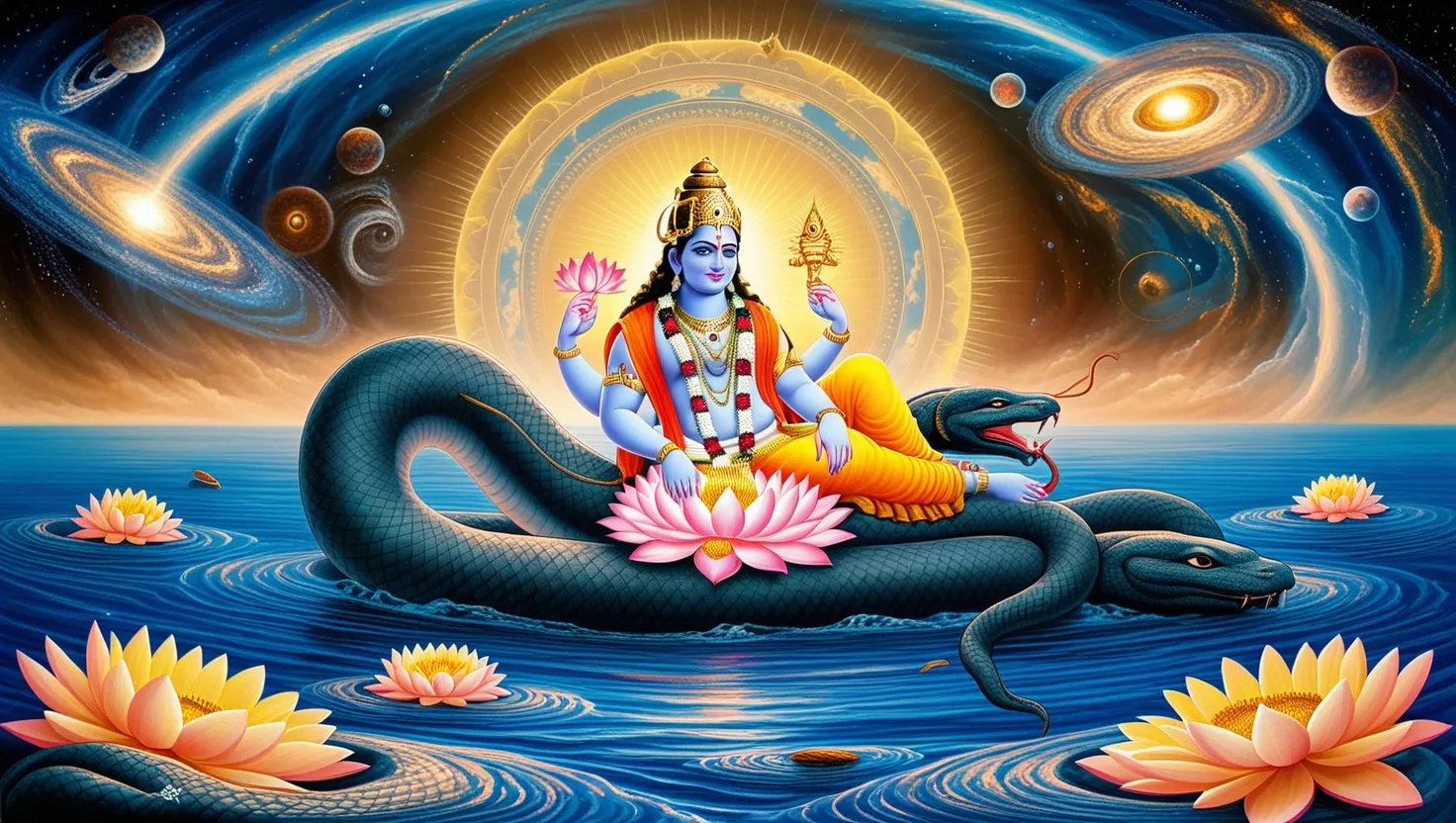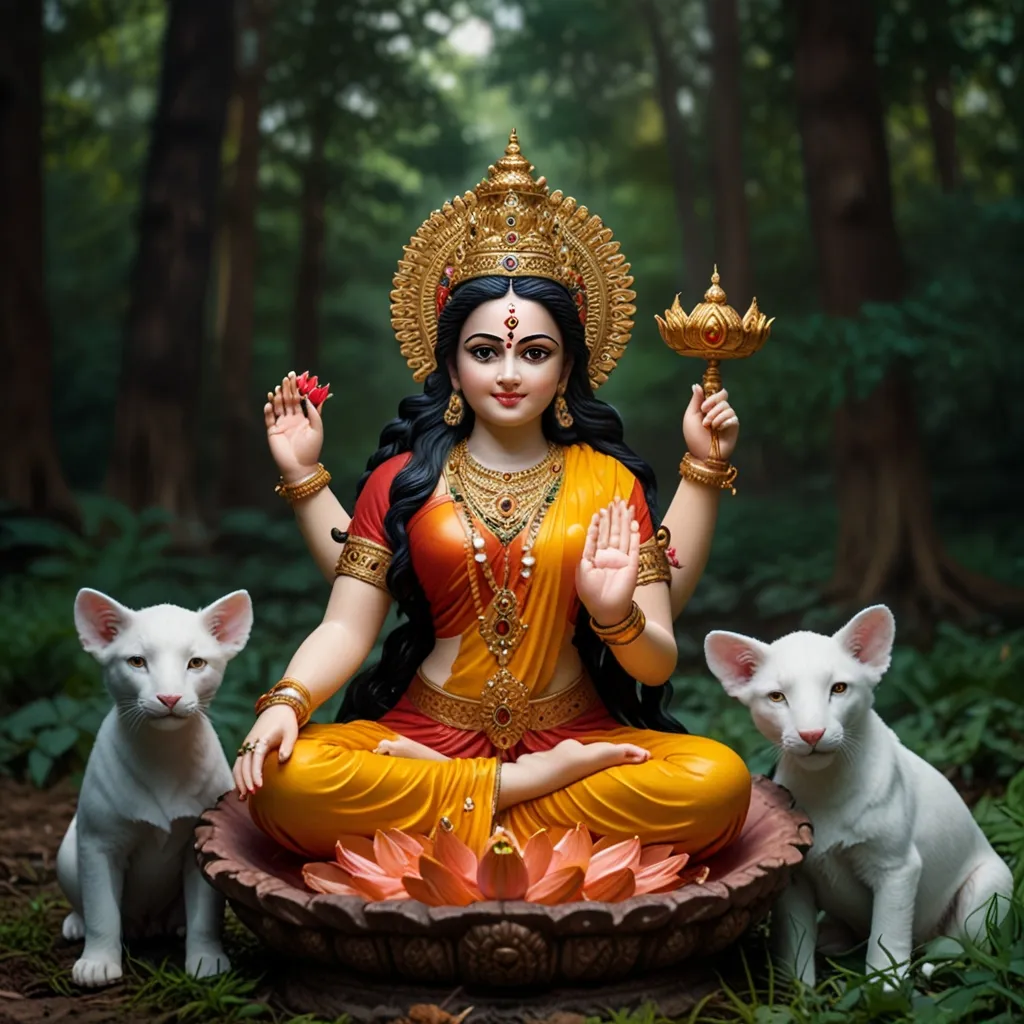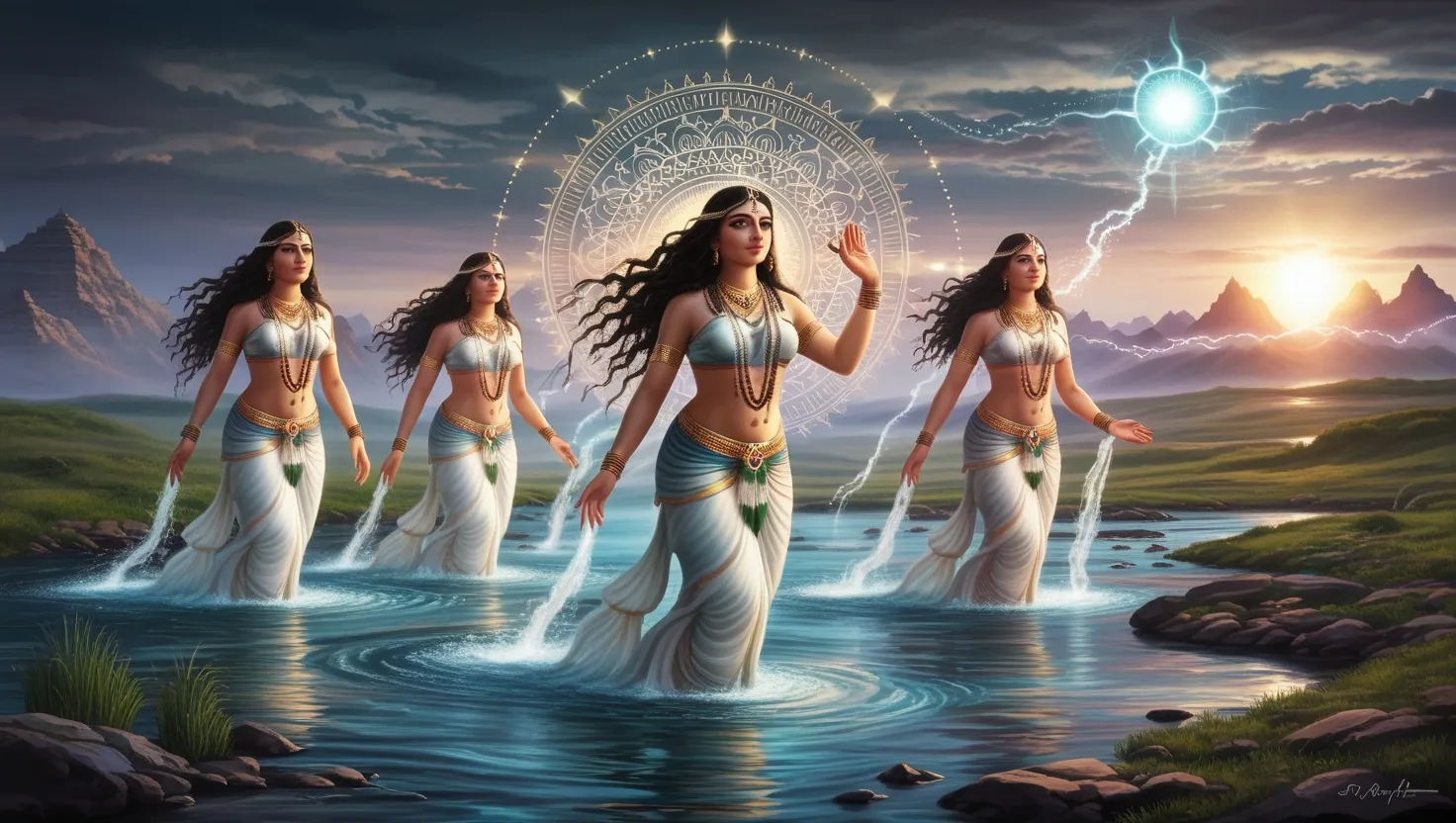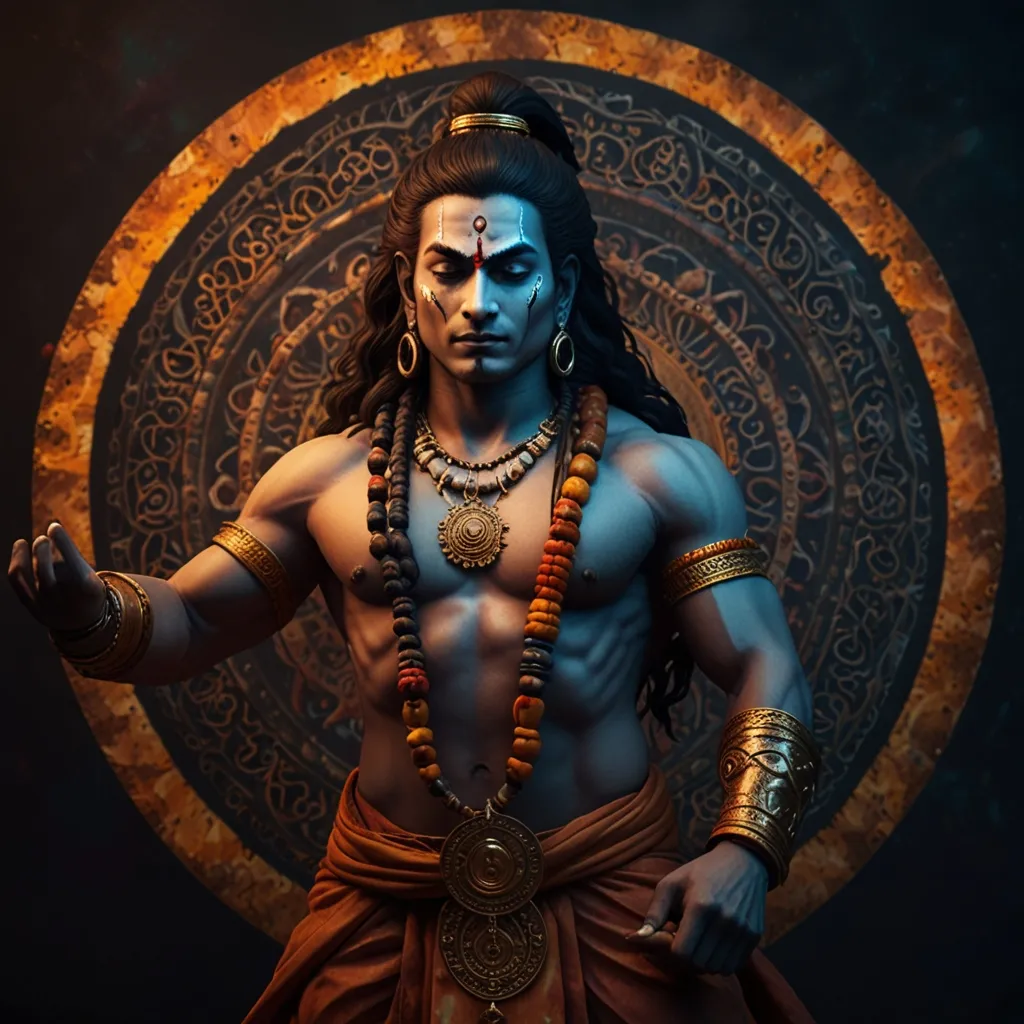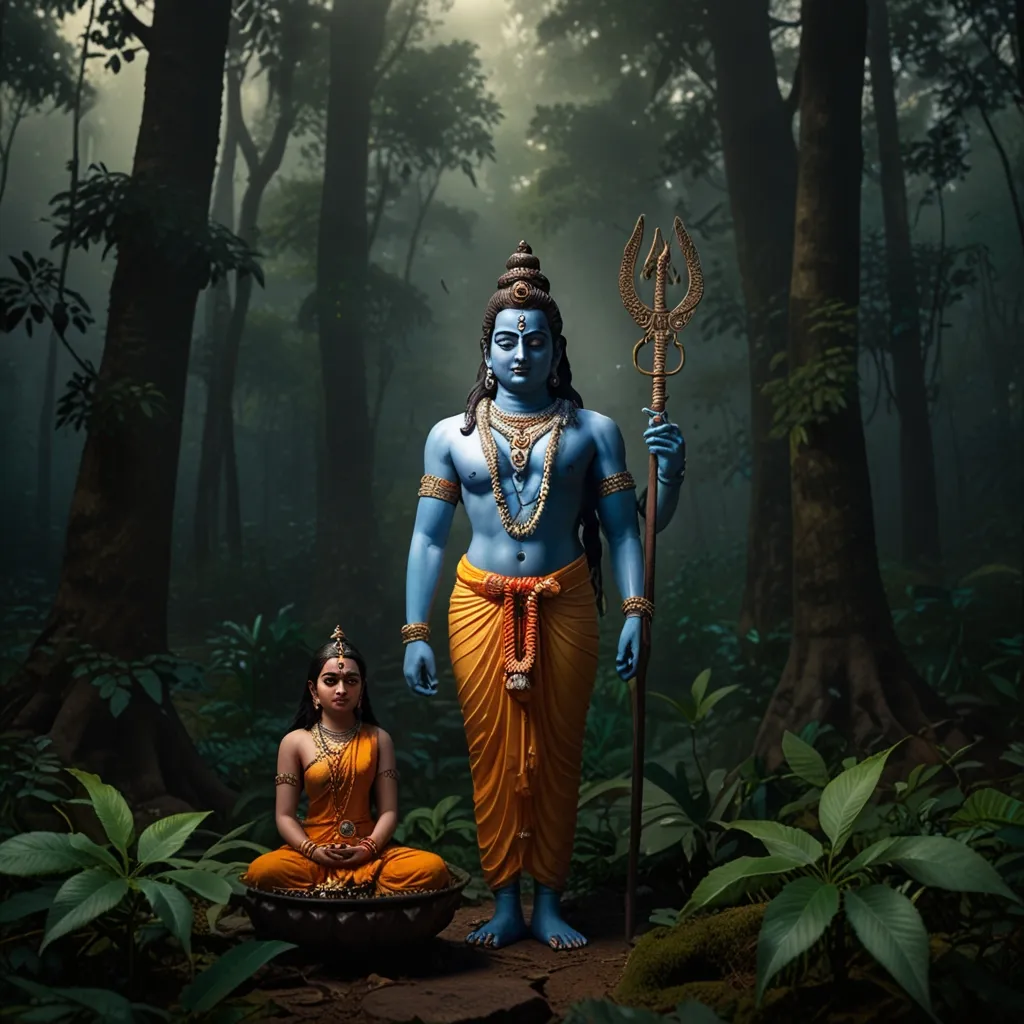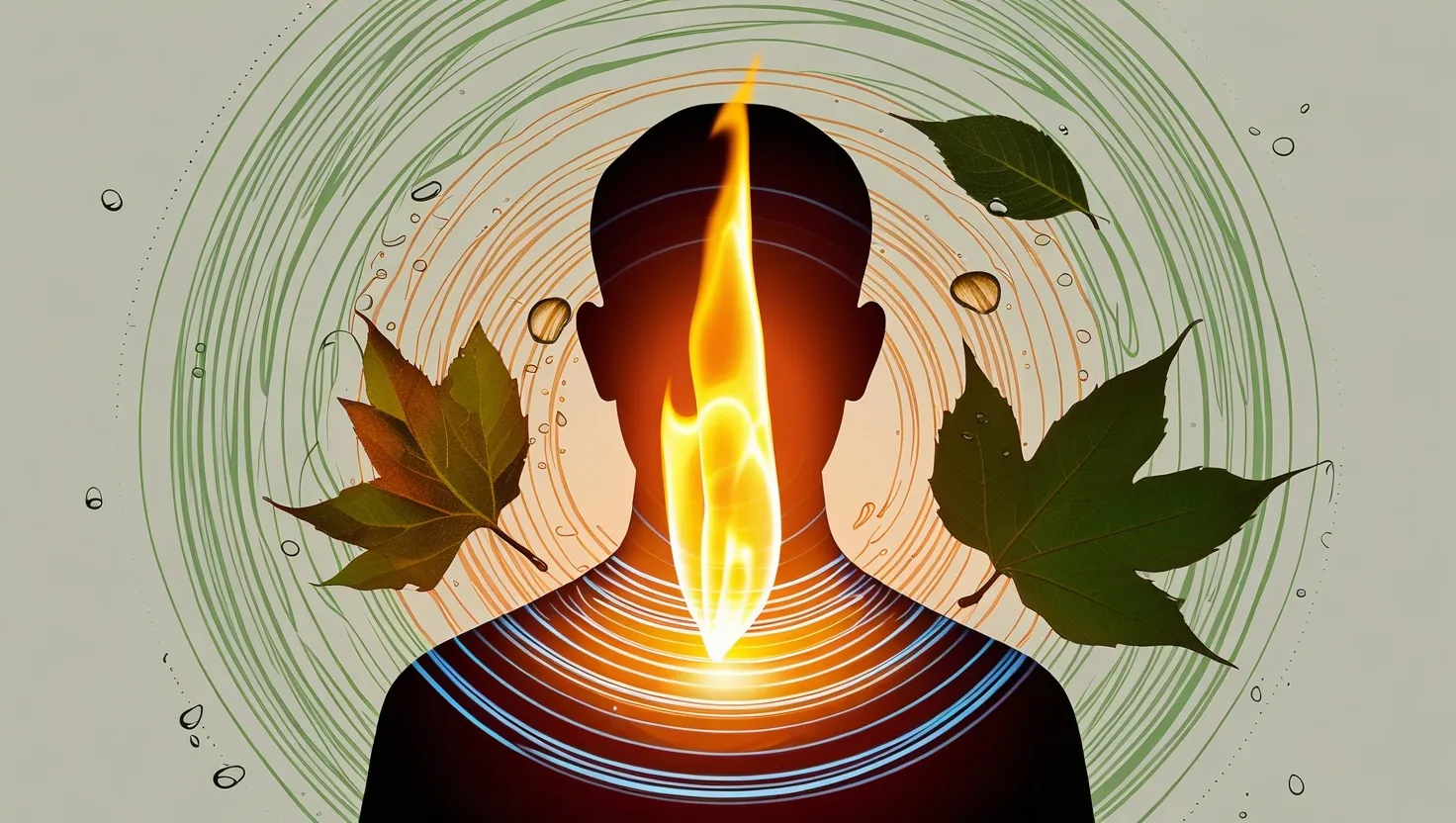When I sit with the stories of creation in the Puranas, I realize these ancient texts aren’t just mythological entertainment. They are bold attempts to answer questions we still ask today. Where did we come from? Why is the world the way it is? What does it mean to exist at all? Rather than present a single, fixed answer, the Puranas offer a mosaic of myths—each a reflection from a different angle, each shining with its own peculiar wisdom.
One image that always stands out for me is Brahma emerging from the lotus that springs from Vishnu’s navel. The lotus, floating unspoiled on muddy waters, feels like a whisper of hope. It’s as if the Purana’s poets already understood that even in chaos, beauty and consciousness can rise. This isn’t just a quaint metaphor. When I think about consciousness arising from the stillness of sleep or the quiet before an idea forms, the lotus feels far more real than abstract philosophy. Isn’t it remarkable how purity, in the Puranic imagination, is not a denial of the world’s messiness, but a direct outgrowth from it?
Now, let’s picture Vishnu reclining on the cosmic serpent Shesha, afloat on the endless ocean. I try to imagine the serenity and power in that pose—indifferent to turmoil, yet entirely present. It suggests a universe that is neither random nor strictly ordered but held together by a divine presence that both participates in and stands apart from its own creation. Is creation an act from outside, or is the divine woven into every fiber of what exists? The myth seems to say: both. It makes me pause and ask myself where I locate the sacred—in distant heavens, or right here, latent in every moment of life’s unfolding?
Shiva, on the other hand, dances. His Ananda Tandava isn’t just performance; it’s the pulse that drives the cosmos. When Shiva dances, everything moves—matter, energy, even time itself. There’s a radiance here, a suggestion that creation is not a static event but a living rhythm, a process forever in motion. If I listen closely, I start to see echoes of this dance in the orbits of planets, the beating of hearts, even the rise and fall of civilizations.
“The universe is not required to be in perfect harmony with human ambition.”
— Carl Sagan
Perhaps no image is more curious than the golden cosmic egg—Hiranyagarbha—floating in a vast void. Something about this motif intrigues me. The egg, so humble and ordinary, also embodies totality. Everything we know—the heavens, the earth, our own awareness—rests in potential inside that shell. When the egg splits, plurality springs from unity, diversity from oneness. I find it sobering to consider: all differences, all forms, ultimately return to the same original mystery. What might the world look like if we remembered our shared cosmic origin a little more often?
The Purusha Sukta gives us another story—one as old as the Rigveda. Here, creation arises from the primordial sacrifice of Purusha, the cosmic being. Everything in the universe is cut from his body: the sun from his eyes, the moon from his mind, the social orders from his limbs. There’s a vulnerability here, a recognition that creativity requires giving something up, that nothing can come into being without transformation. I see shades of this in the way ecosystems recycle death into life, or how our own sacrifices ripple into the greater good.
“The cosmos is within us. We are made of star stuff.”
— Carl Sagan
It’s easy to think of creation as an act of will, but the Puranas often cast it as the power of thought itself. Prajapati, the progenitor, sits in profound meditation, and from this intensity, the world begins to form. Is creation then an act of labor, or of focused vision? The myth reminds us: what we think, we become. In a universe shaped by consciousness, are our thoughts also seeds that shape the world?
But creation is never a one-way street in these texts. The Puranas speak of endless cycles—creation, preservation, and dissolution, each giving way to the next. The universe, we’re told, is built on this rhythm. What once was, falls apart, only to be born again. There’s something comforting in this insight. The stages of our lives, the rise and fall of cultures, even the blinking out of galaxies—they all echo the same cosmic heartbeat. When I struggle with endings, I try to remember that, in this model, every ending is just a pause before the next unfolding.
If these stories seem fantastical, perhaps that’s the point. The Puranic sages never intended a scientific account. Instead, they offered poetry that could hold the contradictions of existence. Is the world random or ordered? One or many? Created or eternal? The answer seems to be yes, and yes again. They weren’t afraid to suggest that truth is richer than logic, and that only myth can sometimes contain the largeness of what is.
What surprises me most about these myths are the ways they cut across boundaries of time and culture. Each narrative, though rooted in ancient India, offers ideas that feel universal. The cosmic egg, for example, shows up in Greek, Chinese, and Polynesian myth. The idea of a universe cycling through birth, death, and rebirth can be found in Buddhism, Taoism, and even in some modern cosmological theories.
“Not only is the universe stranger than we imagine, it is stranger than we can imagine.”
— J.B.S. Haldane
Sometimes I wonder what it would be like to see the world through the eyes of those who first told these stories. Would the trees seem more alive, the stars more connected to our everyday lives? Can we relate to nature as an active participant in our own existence, not just a backdrop to human drama?
The Puranic myths, in their diversity, remind me that no single story can exhaust the world’s wonder. In fact, the richness lies in the telling and retelling, in searching for meaning through metaphor. If I approach these stories not as literal history but as profound meditation, I can begin to ask new questions: What does it mean to build a world every morning? How do we reconcile unity with difference, order with chaos?
The cosmic narratives in the Puranas have another lesson hidden in plain sight—the sanctity of the material world. When the Purusha’s body forms the stars, earth, and even society itself, it tells us everything is interconnected and sacred. There’s no division between spiritual and physical, between divinity and dust. What if we acted as if each thing, no matter how ordinary, was a fragment of the original creative gesture?
“We are part of this universe; we are in this universe, but perhaps more important than both of those facts, is that the universe is in us.”
— Neil deGrasse Tyson
When I reflect on the Puranic concept of time—that endless loop of Srishti and Pralaya—I’m reminded that impermanence isn’t something to fear. Without endings, there would be no space for beginnings. The ebb and flow, the dance and the sleep, are not opposites but partners. What does it mean to live with this awareness? Perhaps it encourages humility, patience, and a kind of serene acceptance.
These myths, ultimately, are not instructions but invitations. They invite us to contemplate existence as a great mystery—one that can never be solved, only experienced. They call us to recognize that creation is not a historical event, but something ongoing, within and around us. Isn’t that an idea worth pondering as we move through our own cycles of renewal and rest?
The Puranas leave us with more than answers—they leave us with awe and with questions. As I revisit them, I find I am not just reading about the universe, but participating in it, co-creating meaning through my attention and imagination. And maybe that is the truest gift these creation myths have to offer: not certainty, but permission to wonder.
Keywords: Puranas creation myths, Hindu cosmology, ancient Indian texts, Purana stories, creation mythology, Hindu creation stories, Brahma creation myth, Vishnu cosmic serpent, Shiva cosmic dance, Ananda Tandava, Hiranyagarbha cosmic egg, Purusha Sukta creation, Prajapati meditation, Hindu philosophy, Vedic cosmology, creation and dissolution cycles, Srishti Pralaya, cosmic consciousness, Hindu mythology analysis, sacred texts interpretation, Indian philosophy, spiritual wisdom, ancient wisdom texts, mythological narratives, Hindu religious texts, cosmological myths, creation stories comparison, universal mythology, consciousness and creation, divine manifestation, cosmic cycles, meditation and creation, Hindu theological concepts, Puranic literature, religious symbolism, mythological philosophy, spiritual contemplation, ancient Indian wisdom, Hindu scriptural analysis, creation mythology interpretation, comparative mythology, sacred geometry, cosmic symbolism, philosophical mythology, Hindu metaphysics, ancient cosmology, spiritual narratives, mythical cosmology, Hindu cultural heritage, religious philosophy, contemplative spirituality, mystical traditions, sacred literature analysis, Hindu devotional texts, cosmic consciousness exploration, ancient spiritual wisdom, mythological studies, Hindu religious philosophy, creation myth analysis, spiritual meditation, contemplative philosophy, Hindu sacred texts, mythological interpretation, cosmic dance symbolism, lotus symbolism Hindu, serpent symbolism mythology, egg symbolism creation, sacrifice creation myths, meditation creation stories, cyclical time Hindu, cosmic order philosophy, divine consciousness, universal interconnectedness, spiritual ecology, sacred cosmos, mythological wisdom, Hindu theological thought, contemplative literature, spiritual philosophy, creation meditation, mythological spirituality, Hindu wisdom tradition, ancient Indian philosophy, cosmic mythology, spiritual symbolism, Hindu contemplative tradition, mythological consciousness, creation philosophy, spiritual narratives analysis, Hindu mystical texts, cosmic wisdom teachings, mythological meditation, spiritual cosmology, Hindu philosophical texts, creation spirituality, mythological philosophy analysis, cosmic consciousness studies, Hindu spiritual literature, ancient wisdom traditions, mythological thought, spiritual contemplation practices, Hindu religious studies, creation myth philosophy, cosmic spirituality, mythological wisdom traditions, Hindu philosophical analysis, spiritual mythology studies, creation consciousness, cosmic meditation, Hindu mystical philosophy, mythological spiritual wisdom, creation story analysis, cosmic philosophy, Hindu contemplative philosophy, spiritual mythology interpretation, creation myth studies, cosmic wisdom, Hindu spiritual philosophy, mythological consciousness studies, creation spirituality analysis, cosmic contemplation, Hindu wisdom literature, spiritual creation stories, mythological philosophy studies, cosmic consciousness philosophy, Hindu spiritual studies, creation mythology philosophy, spiritual cosmology studies, Hindu philosophical studies, mythological spiritual analysis, creation philosophy studies, cosmic spiritual wisdom, Hindu contemplative studies, spiritual mythology philosophy, creation consciousness studies, cosmic spiritual philosophy, Hindu mystical studies, mythological wisdom analysis, creation spirituality studies, cosmic meditation philosophy, Hindu spiritual wisdom, mythological contemplation, creation philosophy analysis, cosmic consciousness analysis, Hindu wisdom studies, spiritual mythology studies, creation meditation philosophy, cosmic spirituality studies, Hindu philosophical wisdom, mythological spiritual studies, creation consciousness philosophy, cosmic wisdom studies, Hindu contemplative wisdom, spiritual creation philosophy, mythological consciousness philosophy, creation spirituality philosophy, cosmic contemplative studies, Hindu spiritual analysis, mythological wisdom studies, creation philosophy contemplation, cosmic spiritual studies, Hindu mystical wisdom, spiritual mythology analysis, creation consciousness analysis, cosmic meditation studies, Hindu wisdom philosophy, mythological contemplative studies, creation spirituality analysis, cosmic philosophical studies, Hindu spiritual contemplation, mythological wisdom philosophy, creation meditation studies, cosmic consciousness contemplation, Hindu contemplative analysis, spiritual mythology philosophy, creation philosophy studies, cosmic wisdom analysis, Hindu mystical analysis, mythological spiritual philosophy, creation consciousness studies, cosmic contemplative philosophy, Hindu wisdom analysis, spiritual creation studies, mythological consciousness analysis, creation spirituality contemplation, cosmic spiritual analysis, Hindu philosophical contemplation, mythological wisdom contemplation, creation philosophy analysis, cosmic consciousness studies, Hindu contemplative philosophy, spiritual mythology contemplation, creation meditation analysis, cosmic spirituality analysis, Hindu wisdom contemplation, mythological philosophical studies, creation consciousness contemplation, cosmic meditation analysis, Hindu spiritual philosophy, mythological contemplative philosophy, creation spirituality studies, cosmic wisdom contemplation, Hindu mystical contemplation, spiritual mythology analysis, creation philosophy contemplation, cosmic consciousness philosophy, Hindu contemplative studies, mythological spiritual contemplation, creation meditation philosophy, cosmic spiritual contemplation, Hindu wisdom studies, spiritual creation analysis, mythological consciousness contemplation, creation spirituality philosophy, cosmic contemplative analysis, Hindu philosophical studies, mythological wisdom analysis, creation philosophy studies, cosmic consciousness contemplation, Hindu contemplative analysis, spiritual mythology studies, creation meditation contemplation, cosmic spirituality philosophy, Hindu wisdom analysis, mythological contemplative analysis, creation consciousness philosophy, cosmic meditation philosophy, Hindu spiritual studies, mythological wisdom contemplation, creation spirituality analysis, cosmic wisdom philosophy, Hindu mystical studies, spiritual mythology contemplation, creation philosophy analysis, cosmic consciousness studies, Hindu contemplative philosophy, mythological spiritual studies, creation meditation studies, cosmic spiritual philosophy, Hindu wisdom philosophy, spiritual creation contemplation, mythological consciousness studies, creation spirituality contemplation, cosmic contemplative studies, Hindu philosophical analysis, mythological wisdom studies, creation philosophy contemplation, cosmic consciousness analysis, Hindu contemplative studies, spiritual mythology analysis, creation meditation philosophy, cosmic spirituality studies, Hindu wisdom contemplation, mythological contemplative studies, creation consciousness analysis, cosmic meditation studies, Hindu spiritual philosophy, mythological wisdom philosophy, creation spirituality studies, cosmic wisdom studies, Hindu mystical philosophy, spiritual mythology philosophy, creation philosophy studies, cosmic consciousness philosophy, Hindu contemplative philosophy, mythological spiritual philosophy, creation meditation analysis, cosmic spiritual studies, Hindu wisdom studies, spiritual creation philosophy, mythological consciousness philosophy, creation spirituality philosophy, cosmic contemplative philosophy, Hindu philosophical philosophy, mythological wisdom analysis, creation philosophy analysis, cosmic consciousness contemplation, Hindu contemplative analysis, spiritual mythology contemplation, creation meditation contemplation, cosmic spirituality analysis, Hindu wisdom analysis, mythological contemplative philosophy, creation consciousness contemplation, cosmic meditation analysis, Hindu spiritual contemplation, mythological wisdom contemplation, creation spirituality analysis, cosmic wisdom analysis, Hindu mystical analysis, spiritual mythology analysis, creation philosophy contemplation, cosmic consciousness analysis, Hindu contemplative contemplation, mythological spiritual analysis, creation meditation studies, cosmic spiritual analysis, Hindu wisdom contemplation, spiritual creation studies, mythological consciousness analysis, creation spirituality contemplation, cosmic contemplative analysis, Hindu philosophical contemplation, mythological wisdom contemplation, creation philosophy analysis, cosmic consciousness studies, Hindu contemplative philosophy, spiritual mythology philosophy, creation meditation philosophy, cosmic spirituality philosophy, Hindu wisdom philosophy, mythological contemplative philosophy, creation consciousness philosophy, cosmic meditation philosophy, Hindu spiritual philosophy, mythological wisdom philosophy, creation spirituality philosophy, cosmic wisdom philosophy, Hindu mystical philosophy, spiritual mythology philosophy, creation philosophy philosophy, cosmic consciousness philosophy, Hindu contemplative philosophy, mythological spiritual philosophy, creation meditation philosophy, cosmic spiritual philosophy, Hindu wisdom philosophy
